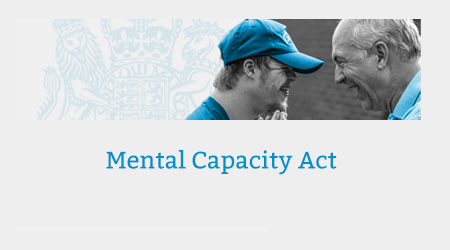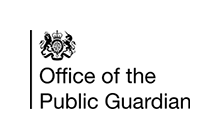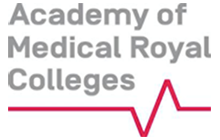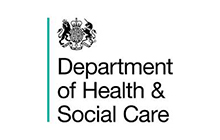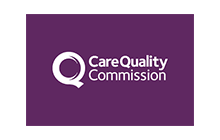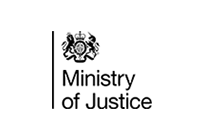About Mental Capacity Act programme
The Mental Capacity Act 2005 (MCA) provides a statutory framework for people who lack capacity to make decisions for themselves, or who have capacity and want to make preparations for a time when they may lack capacity in the future. Where a person lacks capacity, for example to consent to or refuse treatment, the MCA lays out who can make decisions in the person’s best interests, and how such decisions must be made.
More information
Mental capacity is the ability to make a specific decision at the time it needs to be made, with help if necessary. It has been estimated that over two million adults and young people may lack mental capacity at any time (due to dementia, acquired brain injuries, learning disabilities, acute delirium and other conditions).
The Mental Capacity Act 2005 (MCA) is the essential framework for making decisions about the care and treatment of people aged 16 and over, who might lack mental capacity to make their own decisions to consent to, or refuse, interventions that are offered by health or social care professionals. It balances the right to autonomy with the necessity, where essential, for professionals to protect a person and make decisions on their behalf, in their best interests. The MCA lays out how an individual can retain power over decisions that have to be made in the future, if they should lose capacity: and, whether or not a person has taken such steps, it is by following the MCA that professionals ensure they are acting lawfully and respecting the human rights of people who may lack capacity to consent to interventions that are proposed.
The elfh Mental Capacity Act elearning programme (MCA) is made up of 12 elearning sessions, which cover the following titles:
- Mental Capacity Act as Part of Human Rights
- Assessing Mental Capacity
- Planning Ahead Using the MCA
- Best Interests
- Restraint
- Deprivation of Liberty
- Relationship between the Mental Capacity Act and the Mental Health Act
- Mental Capacity Act and Young People aged 16 or 17
- Research involving People who Lack Capacity
- Mental Capacity Act and Adult Safeguarding
- Settling Disputes and Disagreements
- Consent and Refusal by Adults with Capacity
Each elearning session will take approximately 20 to 30 minutes to complete and is made up of knowledge, case scenarios, short interviews and self-assessment questions to test your knowledge. The resource can be accessed on smart phones, tablets and laptop/desktop devices.
The programme was reviewed and updated in March 2024 focusing on the following:
- Updates and revisions to take account of recent case law and user feedback.
- Updated text and references, to highlight relevant recent materials for further reading and enhanced learning.
- Essential revision to materials, resources and references throughout the programme which related to the Liberty Protection Safeguards (LPS).
The Liberty Protection Safeguards
The Liberty Protection Safeguards (LPS) were introduced by the government through the Mental Capacity (Amendment) Act 2019 and will replace the Deprivation of Liberty Safeguards (DoLS) on a date to be announced.
Ahead of the transition from DoLS, and to help health and care practitioners with LPS implementation, Health Education England has developed a short animation, to be followed by a more detailed elearning programme about LPS and other resources. The resources will be available on the elearning for healthcare Hub several months before the implementation date, when that is announced.
What will the Liberty Protection Safeguards (LPS) do?
Like DoLS, LPS will protect the rights of people who use health and care services not to be deprived of their liberty without a proper legal process and rights to challenge.
They will provide these important human rights protections to people aged 16 and above who
• are or need to be deprived of their liberty to enable care or treatment and
• lack the relevant mental capacity to consent to their care and treatment arrangements.
LPS are designed to be simpler and more streamlined than DoLS and embedded into existing care planning. This means vulnerable people will access the vital protections they need more quickly. The new system will also put the person at the centre. It will do this by working as part of the wider care-planning process and by introducing an explicit duty to consult with the person, and those interested in their welfare, to establish their wishes and feelings about the proposed arrangements.
As well as extending their protection to young people aged 16 and 17, like the rest of the Mental Capacity Act (MCA), a further key change for LPS is the extension of the scheme to community settings. These include supported living or the person’s own home, settings where previously an application would have been needed to the court of protection.
LPS also creates new roles as Responsible Bodies, for NHS Trusts and Integrated Care Boards.
For the first year LPS authorisations will run alongside existing DoLS ones, until these naturally end. Practitioners across health and care should, however, continue to engage with learning on DoLS where required until LPS is implemented.
Liberty Protection Safeguards Animation

Rachel Griffiths MBE
Clinical Lead MCA Programme
Jonathan Guy
Project Manager, elfh
Paul Kelly
Learning Designer, elfh
Victoria Ward
elfh
External Advisory Group
- Baroness Finlay of Llandaff FMedSci., FRCP FRCGP, Chair of the National Mental Capacity Forum
- Charlotte Gandhu, External Partnership Manager, Office of Public Guardian
- Rebecca Weaver, Content Design and Editorial Manager, Office of Public Guardian
- Liz Eaton, Head of Mental Capacity Policy, Family Justice, Ministry of Justice
- Debbie Ivanova, Deputy Chief Inspector (London and South) Adult Social Care, Care Quality Commission
- Lucy Series, Wellcome Research Fellow and Lecturer in Law, Cardiff School of Law and Politics
- Dr Pippa Harrold, Salaried GP, Norwich, Former Lead GP Adult Safeguarding, Norfolk & Waveney CCGs, April 2017- April 2019
- Lorraine Currie, Mental Capacity Consultant, Member of NMCF Leadership team, Chair of National DoLS Leads group
- Ben Troke, Partner, BrowneJacobson Solicitors
- Rebecca Fitzpatrick, Partner, BrowneJacobson Solicitors
Many thanks to those who gave up their valuable time for free in order to input into the review of the elearning sessions and or took part in the filmed interviews.
How to access
In order to access the Mental Capacity Act programme, you will need an elfh account. If you do not have one, then you can register by selecting the Register button below.
To view the Mental Capacity Act programme, select the View button below. If you already have an account with elfh, you will also be able to login and enrol on the programme from the View button.
Not an NHS organisation?
If you are not an NHS health or care organisation and therefore do not qualify for free access elfh Hub, you may be able to access the service by creating an OpenAthens account.
To check whether or not you qualify for free access via OpenAthens, you can view the eligibility criteria and register on the ‘OpenAthens’ portal.
Registering large numbers of users
If you are a HR, IT or Practice Manager and would like to register and enrol large numbers of staff within your organisation for access onto the Mental Capacity Act programme, please contact elfh directly.
Organisations wishing to use their own LMS
For HR departments wanting to know more about gaining access to courses using an existing Learning Management System please contact elfh directly to express interest.
More information
Please select the following link for more information on how to use the elfh Hub.



